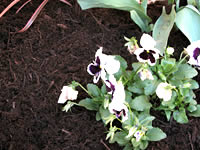Company Profile & Focus on Technology | Benefits of Compost
![]()
 Using compost can save you time and money. Compost improves soil quality by adding organic matter and nutrients, released slowly and constantly for steady plant growth.
Using compost can save you time and money. Compost improves soil quality by adding organic matter and nutrients, released slowly and constantly for steady plant growth.
Plants grown in good soil are healthier and have greater resistance to diseases and insects. By greatly reducing the need for pesticides and fertilisers, you save money and protect the ecology of your garden, local waterways, and surrounding environment.
- As compost breaks down in the soil, it provides fertiliser nutrients of nitrogen, phosphorus and potassium in forms readily available to plants. These nutrients are slowly released for continual absorption and growth.
- Added to sandy soils, the organic matter in compost increases the soil’s water holding ability so that rain and irrigation water are held in the root zone for plant use.
- Compost lightens heavy clay soils, allowing better infiltration of both air and water into the root zone.
- Organic matter functions like a sponge, enabling soil to retain nutrients and moisture in the root zone.
- Earthworm activity is encouraged, further enhancing soil fertility.
- Compost appears to suppress some types of plant disease.
- Properly processed compost will not introduce weed seeds or pathogens.

